

Publications Regarding the government
Articles

Israel Needs a DOGE, But Not Like America’s
Written By: Tomer Lotan
Many in Israel have watched Elon Musk's DOGE department and advocated for implementing the same approach in Israel. However, the model should be attuned to Israeli needs, including reducing the inflated number of government ministries and curbing wasteful budget allocations, such as the coalitionary funds.

Netanyahu and His Ministers Have Driven Israel to the Verge of a Constitutional Crisis
Written By: Dr. Amir Fuchs
Disregard of the Attorney General’s authority to interpret the law by several government ministers is leading Israel toward a constitutional crisis.

New Structure for the Government
Written By: Tomer Lotan, Vered Constantini
New Study by Tomer Lotan and Vered Constantini at the Israel Democracy Institute
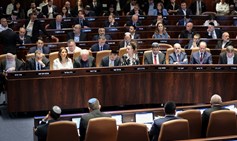
The Judicial Overhaul and Anti-Democratic Initiatives
Written By: Adv. Anat Thon Ashkenazy, Adv. Daphne Benvenisty
Judicial overhaul initiatives, along with other anti-democratic measures, have continued to be promoted by the government and the coalition in the Knesset. This document outlines the various actions taken in government that weaken the Israeli judiciary and democracy at large.

Israel's Next Government Must Push Climate Legislation
Written By: Daphna Aviram-Nitzan, Itamar Popliker
The impact of the climate crisis on the well-being of Israel’s citizens is to a large extent dependent on the politicians’ coming to grips with the issue.
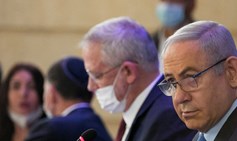
Ireland Finally Has a Government!
Written By: Prof. Ofer Kenig
A tale of two unity governments: The coalition agreement that formed Israel's unity government is all about forcing the parties to live up to the deal. Ireland's is all about policy.
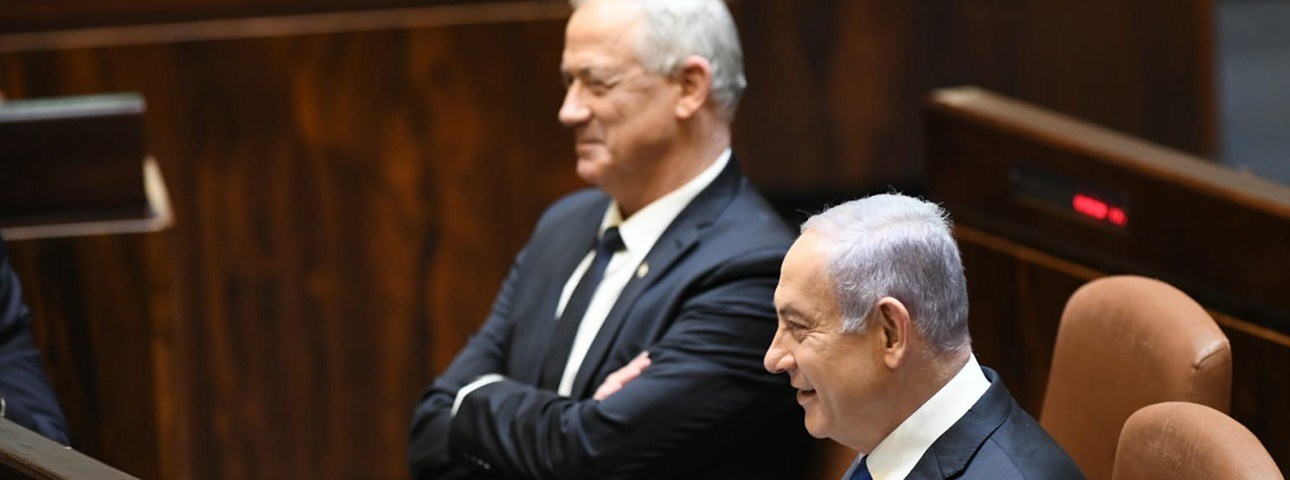
Israel’s Cease-Fire Government Should Promote Healing, Not Division
Written By: Yohanan Plesner
Netanyahu and Gantz could use their unity government to put in place a 'democratic ceasefire' and speed Israel’s economic recovery rather than entrenching political deadlock.

A Jumbo-Size Government? Now? Really?
Written By: Prof. Ofer Kenig
Reports of a 30 to 34 minister cabinet in the works beg for a public outcry: Costly, inefficient and divisive is not what we need today.

A Unity Government to Deal with the Emergency?
Written By: Dr. Dana Blander, Prof. Ofer Kenig
Will the coronavirus crisis result in an unity government, which can, at least temporarily, resolve Israel's political deadlock? IDI experts explain.
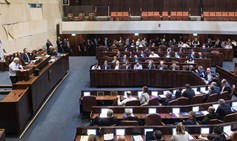
Incumbent Minority Governments
Written By: Prof. Ofer Kenig
Although there is no precedent in Israel's history for forming a minority government immediately after an election, minority governments around the world are far from a rarity.

Using Ex-ante Pledges to Reduce Dishonesty and Improve Regulation
Written By: Dr. Eyal Pe'er, Prof. Yuval Feldman, Omer Selivansky Eden, Daphna Aviram-Nitzan
Reducing the regulatory burden is a key objective for many government ministries -but how can this be achieved while maintaining honest and ethical behaviour

Farewell Elections, Hello 35th Government
Written By: Prof. Ofer Kenig
The strangest and most polarizing election in Israel’s history is now over. The people have spoken, and we’re now entering the next stage of the political lifecycle: forming a new government. What are the rules governing this process, and what can be learned from a historical and comparative perspective?

Post-Election Scenarios and the Case for Unity
Written By: Yohanan Plesner
Of the three realistic options, a unity government seems optimal. The other possibilities - a third round of voting or a narrow, right-wing government - carry exorbitant price tags.
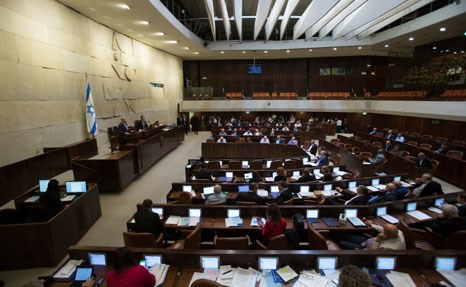
Unity Coalition Governments: Explainer
A unity government (or “grand coalition”) is a special type of coalition with a particularly broad base, including all the major parties represented in the parliament and can have a range of ramifications on the political system. This explainer outlines how its works in Israel and around the world.

A Test of Reasonableness
Written By: Dr. Amir Fuchs
The bizarre constitutional situation in which we now find ourselves raises a great many legal questions, not all of which have simple answers. Does the law allow the prime minister to fire all the government’s ministers? Can he serve as “the government” by himself?
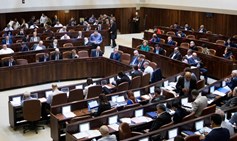
What if Netanyahu Fails to Form a Coalition? Explainer
Written By: Prof. Ofer Kenig
What if Netanyahu fails to form a coalition? Will Israel find itself again holding elections? Although unlikely – Dr. Ofer Kenig explains the possibilities

Revoking Limitation on Number of Ministers - Ramifications
It wastes public funds, impairs government efficiency, and hinders its capacity to promote policy

Strengthening the 'Rule of Law' in Coalition Agreements
The Israel Democracy Institute calls on Parties to Demand Strengthening of 'Rule of Law' and 'Separation of Power's in Coalition Agreements.

Israeli Politics is Still a (Mostly) Boys’ Club at the Top
Written By: Prof. Ofer Kenig
Despite record numbers in the Knesset, few females hold senior government posts — their absence leaves Israel worse off.

Has The Era of the Primaries Come to an End?
Written By: Prof. Ofer Kenig
Democracy is at risk when the responsiveness between the public and its elected representatives is severed. Without accountability, political extremism and populism will become more prevalent.

Keep Politics Out of Corruption!
Written By: Prof. Yuval Feldman
Supporters of this government show increasing tolerance for graft, and this is a red flag for the rule of law in Israel.

Parliamentary Work Index for Israel’s Political Parties
Written By: Dr. Assaf Shapira, Avital Friedman, Dr. Shahaf Zamir
A Special Analysis by the Israel Democracy Institute on which MKs make the most use of the parliamentary tools available to them.
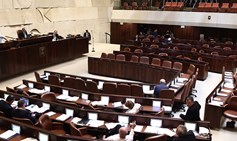
The Knesset at Age 69: Still Struggling for the Public's Trust
Written By: Lahav Harkov
While members of Knesset represent Israel's diverse society, they're still seen as self-interested and ineffectual by the public.

Leviathans, Minnows and the Rule of Law
Written By: Prof. Yedidia Z. Stern
“Pray for the welfare of the government. For if it were not for fear of it, one man would swallow his fellow alive (Avot 3:3).”

Turning Back the Tide
Written By: Yohanan Plesner
To tackle the crisis of democracy we must restore the public's faith in its governing institutions.

The Mobileye Acquisition is Proof that AI Needs Guidelines
Written By: Dr. Tehilla Shwartz Altshuler
The sale of Mobileye to Intel is not surprising when you consider that last year MIT Technology Review ranked the Jerusalem-based company as one of the 10 smartest companies in the world. As such, the real story is the relationship between government, society, and technology.

Start-up Nation Central, the Israel Democracy Institute and the Israel Innovation Authority Praise the Government’s Decision to Increase Governmental Interoperability as an Important Step for the Israeli Civil Service
The Israel Democracy Institute (IDI), the Israel Innovation Institute (III) and Start-up Nation Central (SNC) said the government’s recent decision to approve implementing new and innovative interoperability strategies is an important step that could lead to a major breakthrough.

Statement by IDI President Yohanan Plesner on Reforming Government Service
"We are witnessing a flood of initiatives that intend to bring about the politicization of and harm to the independence of the public sector."

The Glass is Half Full

IDI Experts Oppose Bill To Halt Funding To Parties Who Support Boycotting Israeli Settlements
A sharply worded policy statement by Israel Democracy Institute experts was sent last week to members of the Ministerial Committee on Legislation against the proposed amendment to the party funding law that allow a committee to halt funding to parties that call for placing a boycott on the state of Israel or any area of Israel, including the West Bank.

The Presidency: The “Additional Soul” of Israeli Democracy
Written By: Reuven Rivlin
Former Speaker of the Knesset MK Reuven (Ruby) Rivlin shares his views on the importance of the institution of the Israeli presidency, as part of an exclusive IDI series of articles by the presidential candidates of 2014.

Only a Constitution will Ensure Good Governance in Israel
Written By: Dr. Amir Fuchs
IDI researcher Attorney Amir Fuchs asserts that the only way for Israel to ensure good governance is by adopting a constitution.
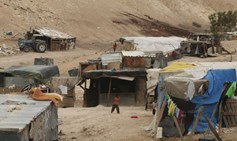
Regulating Bedouin Settlement: A Disengagement Plan for the Negev
Written By: Ronit Levine-Schnur
Ronit Levine-Schnur analyzes the Bill to Regulate Bedouin Settlement in the Negev 5773–2013, warns that it seems to be motivated by an exaggerated fear of a Bedouin takeover of the Negev, and offers an alternative approach.

The Governance Bill: A Status Update
Written By: Prof. Gideon Rahat
An update on the status of the proposed Governance Bill and how it aligns with the recommendations of IDI researchers, which was written after IDI experts participated in Knesset committee deliberations.

The Governance Bill: Pros and Cons
Written By: Dr. Arye Carmon, Prof. Gideon Rahat, Prof. Ofer Kenig, Reut Itzkovitch Malka
A video in which IDI researchers discuss some of the pros and cons of the Governance Bill being considered by the Knesset.

Coalition Building in Israel: A Guide for the Perplexed
Written By: Prof. Ofer Kenig
In an article specially written for the IDI website, Dr. Ofer Kenig explains the basic principles of the process of coalition building, sharing facts, figures, and comparative data.

The Finest or Worst Hour of Israeli Politics?
The nocturnal formation of a new coalition, just as legislation to dissolve the Knesset was about to be passed, left many wondering if this was Israeli politics at its best or at its worst. Dr. Dana Blander explores both sides of this episode, which is likely to redefine what is forbidden, permitted, and worthwhile in Israeli politics.

Conference Rationale
Written By: Karmit Haber
IDI's international conference "What Do Think Tanks Do?," conducted in May 2011, focused on the role and nature of think tanks in the democratic context. In this article, Dr. Karmit Haber explains the rationale behind the conference and examines the primary roles of think tanks and how they approach a variety of issues.

Policy Recommendations for the Minister of Education
Written By: Dr. Tammy Hoffman
After three contentious election campaigns, Israel's new government has been sworn in. IDI's experts weigh-in with their recommendations on the most important issues on the agenda. Dr. Tammy Hoffman outlines policy recommendations for the new Minister of Education.
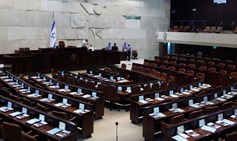
A Weak and Inefficient Knesset
Written By: Dr. Chen Friedberg
In a democracy, parliaments are supposed to not only pass laws but also engage in oversight; that is, to ensure that legislation is implemented and identify deficiencies in the government’s work.

Justice Minister Ayelet Shaked: 'Legislation is like medicine'
At joint Israel Democracy Institute-Makor Rishon conference, ministers also addressed chemical weapons tragedy in Syria.

